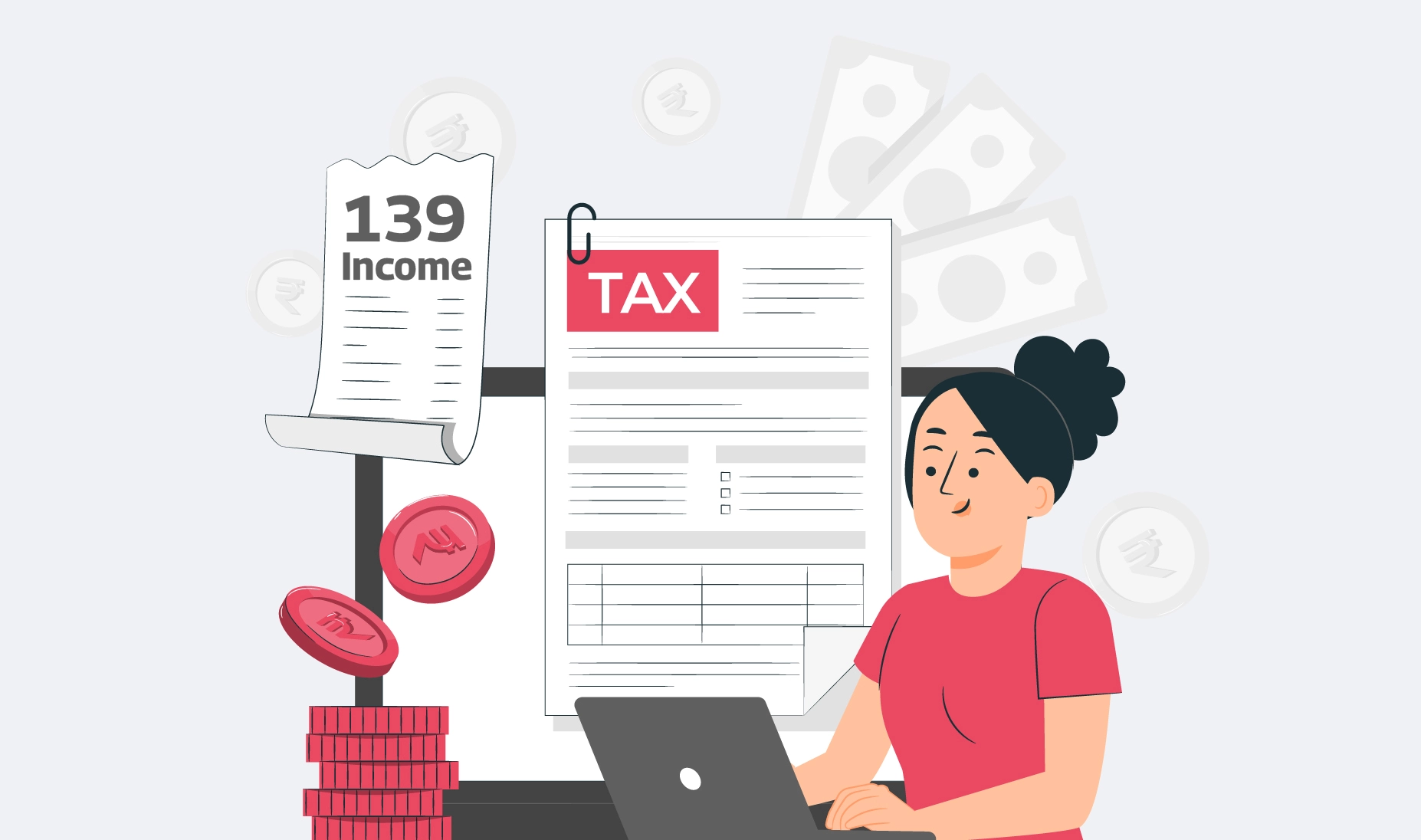Different Types of Permits and all India Permit Fees for Commercial Vehicle – All India Permit and Fees
.png)
Do you know that if you want to drive your vehicle across the country, you need a permit for that? Well, when we get to know this, there are several other questions that come to our minds, right? Some of them are the types of permits that you need to drive your vehicle, the permit fees and their period, etc. Before we confuse ourselves with a heap of questions, let us first understand the meaning of a Permit, What is all India permit?, and What are all India permit fees?
.png)
- What is a Motor Vehicle Permit?
- Different Permits as Per the Type of Vehicle
- Goods Vehicle Permit Fees and Permit Period
- National Permit for the Different States in India
- National Permit for the Different States in India
- Counter Signatures of a Good Carrier Permit
- Renewal of a Permit and Fees
- Passenger Vehicles Permits
What is a Motor Vehicle Permit in India?
A permit is a document that is mandatory for anyone who drives a transport or commercial vehicle. One of the first things that are checked by the highway patrol and other authorities is the vehicle permit details. As per the provisions made under section 166 of Motor Vehicle Act, 1988, the Transport Authority issues this legal permission to use a vehicle for the purpose of transport. However, some of the transport vehicles are not included in this list, such as vehicles that belong to the government, fire brigade, police, ambulances, and cranes. The other good vehicles that are exempted from this list of vehicles are the ones that weigh below 3000 kg. Therefore, we can say if you want to drive your transport vehicle in a state or all through the country, you would require permission in the form of a State Permit or National Permit.
3 Different Permits as Per the Type of Vehicle
To understand it better, let us divide the permits as per the types of vehicles. Based on the need for which the vehicle has to be used, permits can be further divided into two categories; such as Goods Vehicles Permit and Passenger Vehicles Permit.
1. Goods Vehicle Permit Fees and Permit Period
There are various types of good vehicles, which are divided into Light Goods Vehicle (LGV) and Heavy Goods Vehicle (HGV). Mentioned herein below is the information that is related to the permit fees and period of these vehicles.
2. For Local/State Permits
For getting a local permit so that you can operate your vehicle within a state, you have to get a permit under the Motor Vehicles Act, 1988 Section 79.
| Type of Vehicle | Fee Detail | Validity of Permit |
| Light Goods Vehicle (LGV) | INR 2000 | For 5 years |
| Heavy Goods Vehicle (HGV) | INR 2500 | For 5 years |
3. For National Permit
If you intend to use your vehicle at least in three states, excluding Delhi, you would require a national permit also known as the all-India permit. To apply for this permit, you need to fill in some forms such as Form 46 and Form 48. You can also apply for the online national permit, which is an initiative by the government to make the entire process paperless and streamlined. The information is mentioned herein below:
| Type of Vehicle | Fee Detail | Validity of Permit |
| Light Goods Vehicle (LGV) | INR 2015 | For 5 years |
| Heavy Goods Vehicle (HGV) | INR 2515 | For 5 years |
You can also make the national permit online payment and submit your application at the government website.
All India Permit – National Permit Fees for the Different States in India
The national permit fees for various states in India are not the same, and vary from one another. Mentioned below is the information about the national permit for a few of the states provided.
| Serial number | Name of the state | National permit fees |
| 1 | Haryana | INR 5000 |
| 2 | Rajasthan | INR 5000 |
| 3 | Madhya Pradesh | INR 5000 |
| 4 | Uttar Pradesh | INR 5000 |
| 5 | Himachal Pradesh | INR 5000 |
| 6 | Jammu and Kashmir | INR 5000 |
| 7 | Punjab | INR 5000 |
| 8 | Bihar | INR 5000 |
| 9 | Gujarat | INR 5000 |
| 10 | Maharashtra | INR 5000 |
| 11 | Orissa | INR 5000 |
| 12 | West Bengal | INR 5000 |
| 13 | Kerala | INR 5000 |
| 14 | Assam | INR 5000 |
| 15 | Meghalaya | INR 5000 |
| 16 | Tamil Nadu | INR 5000 |
| 17 | Andhra Pradesh | INR 5000 |
| 18 | Chandigarh | INR 5000 |
| 19 | Pondicherry | INR 5000 |
All India Permit Fees/Price For Commercial Vehicles
| Type of permit | All India Permit Price | Validity period of the permit |
| Light Goods Vehicle (LGV) | INR 1215 | For 5 years |
| Heavy Goods Vehicle (HGV) | INR 1615 | For 5 years |
| Contract Carriage Permit for buses | INR 1100 | For 5 years |
| All India Tourist Permit for buses | INR 500 | For 1 year |
| Stage Carriage Permit for Red line, Blue lines, Suvidha and Interstate Permits (Renewal fee) | INR 1100 | For 5 years |
| Point to Point Permit | INR 500 | For 4 months |
| LGV | INR 1500 | For 5 years |
| HMV | INR 2500 | For 5 years |
| Counter Signature for other State Stage Carriage | INR 2500 | For 5 years |
Counter Signatures of a Good Carrier Permit
The Regional Transport Authority issues this in one state to enter into the other state. Nevertheless, in Delhi, a vehicle can be restricted from entering if the registration of the vehicle is of another state or if its gross weight is over 7500 kg with no clean fuel. You also need to know that the temporary permit is issued regularly at a minimal fee which you have to pay as tax at the state borders. These days you can also check vehicle permit details online to make a note of the validity of the permit before going on a transport assignment.
Renewal of a Permit and Fees
If you want to renew the permit for the next five years, an application needs to be submitted along with the renewable fees, 15 days ahead of the expiration of the permit. The renewable fee is the same as the first-time fee that is needed to issue a permit.
Permit Renewal and Applicable Charges
Here are some points to remember about vehicle permit renewal in India:
- The permit renewal charges are the same as those applicable for the issuance of a new permit
- All vehicle permits except a special permit issued under subsection (8) of section 88 or a temporary permit are valid for 5 years from the date of permit issuance
- To renew a vehicle permit, a vehicle owner must submit a duly filled PRA application and the payable fee at least 15 days before the permit expiry date.
- The late fee payable by the applicant after the expiry date on a permit renewal is as follows:
| Vehicle Type | Charges for Late Payment of Renewal Fee |
| Heavy Motor Vehicles |
|
| Light Motor Vehicles |
|
| Local Taxis |
|
| Auto Rickshaws |
|
Passenger Vehicles Permits
Under the passenger vehicles category, two types of permits that come are auto-rickshaw and taxi permits. Fees for these permits vary from one state to the other. However, to make a uniform system, the permit regime is being revamped by the Ministry of Road Transport and Highway (MoRTH). It is to make things simpler and the same in each state for all vehicle owners.
To apply for the vehicle permit, the documentation that is needed included the vehicle’s registration certificate, fitness certificate, and a valid insurance certificate. If you are planning to renew your vehicle insurance, you can get some great deals that you can compare and choose online.
What To Do with the Vehicle Permit After a Vehicle Replacement?
There could be times when a vehicle owner replaces the vehicle with a new one for some reason. Then, what should be done with the vehicle permit? Read on to understand some crucial points in case of a vehicle replacement:
- The Government of India allows the vehicle owner to replace the vehicle with another similar vehicle while keeping the permit intact
- The Government of India provides a four-month duration for the replacement of a vehicle after getting a vehicle registered in the replacement mode
- This four-month duration stations from the date the permit is deposited
- Once the four-month duration is over, the permit holder will be levied charges as follows:
| 1st Day – 30th Day After Expiry- | Rs. 10/Day |
| 31st Day – 60th Day After Expiry- | Rs. 20/Day |
| 61st Day – 120th Day After Expiry- | Rs. 20/Day |
| 121st Day – 180th Day After Expiry- | Rs. 60/Day |
| 181st Day Onwards After Expiry- | Rs. 100/Day |
How to Apply for a Vehicle Permit in India
Listed below are the easy steps to apply for a Vehicle Permit in India:
Step 1: Visit the respective RTO office of your state
Step 2: Get the permit application forms from the RTO and fill in the required details
Step 3: Submit the application form with the required documents
Step 4: Pay the fees required for the Vehicle Permit
Step 5: Allow the RTO to process your application form
Step 6: The RTO authorities will check and fill in the vehicle’s conditions, seating arrangement, body, and other details
Step 7: Your vehicle will be examined for compliance with the terms and conditions set by the RTO, and your application will then be finally processed
Documents Required for a Vehicle Permit
Here is the list of documents required to apply for a Vehicle Permit:
- National Permit Fee
- Vehicle Fitness Certificate
- Vehicle Insurance Certificate
- Vehicle Registration Certificate
- Payment of Green Taxes, if applicable
- Application Form Number 46 and 48
- Proof of Quarter Tax Payments of the current year for the Home-based State National
- Demand Draft for the payment of taxes in favour of the Transportation Authorities
FAQs - All India Permit and Fees
The current cost of an All India Permit is approximately Rs. 16,500. It allows you to choose a minimum of three Indian states excluding the national capital New Delhi. More states can be added by paying an additional price for each chosen state.
You are advised to renew your vehicle permit 15 days before the expiry date. Renewing it means extending the permit for the coming five years. For this, you need to pay the same fees as required when issuing a new vehicle permit.
There are different types of permits for motor vehicles in India like:
- National Permit or All India Permit
- Goods Carrier Permit
- Point-to-Point Permit
- Light Goods Vehicle Permit
- Heavy Goods Vehicle Permit
- All-India Tourist Permit
- Stage Carriage Permit
- Counter Signature for State Carriages for Punjab and Haryana
- Counter Signature for State Carriages for states other than Punjab and Haryana
The Regional Transport Authority of the state where the commercial vehicle is registered issues an All India Permit for vehicles.
Yes, you need an All India Permit if travelling with your two-wheeler vehicle across the state border. Also known as the National Permit, an All India Permit allows you to take your two-wheeler to different states.
First of all, make sure to check the restrictions To get a permit for an All India Vehicle or a National Permit, the owner of the vehicle must apply to the State Regional Transport Authority of the home state with an application.
You don’t need an All India Permit to travel in a private vehicle if you are not using it as a taxi. However, make sure to carry all the valid vehicle-related documents while travelling in the vehicle.
State Permit allows one to drive a vehicle only in a particular state where the permit was issued. Whereas, an All India Permit allows one to drive a vehicle outside the state where it was issued

Author Bio
Paybima Team
Paybima is an Indian insurance aggregator on a mission to make insurance simple for people. Paybima is the Digital arm of the already established and trusted Mahindra Insurance Brokers Ltd., a reputed name in the insurance broking industry with 17 years of experience. Paybima promises you the easy-to-access online platform to buy insurance policies, and also extend their unrelented assistance with all your policy related queries and services.
Other Motor Insurance Products
Latest Post

Taxpayers should know more about Section 139(1) of the Income tax act since it is the section under which they have to file their returns if they have missed filing within the due date.


Have you ever caught yourself lost in illusions about your daughter's future events, such as her university convocation and first day at work? Her university convocation. When she embarks upon her initial job after graduation will be the day.

In a country where medical inflation is rising rapidly, securing a comprehensive health coverage plan for the entire family is no longer optional, it is essential. Selecting the right health insurance requires careful evaluation of multiple factors, not just premium costs. A well-chosen plan ensures financial security, access to quality healthcare, and peace of mind during medical emergencies.


Term insurance is an important investment. However, with the availability of so many insurers offering term plans, it becomes difficult to select the best term plan to suit your needs. Buying a term plan needs some consideration and research on the part of the policyholder. In this post, let us discuss the best term insurance providers in India.

.png)
When you sign up for a life insurance policy - whether it’s a traditional term insurance policy or a ULIP – you are not just buying peace of mind. You are also trusting the insurer with your money. So naturally, you would want to know: How is that money being managed? And more importantly, how is it being protected from risky decisions?




